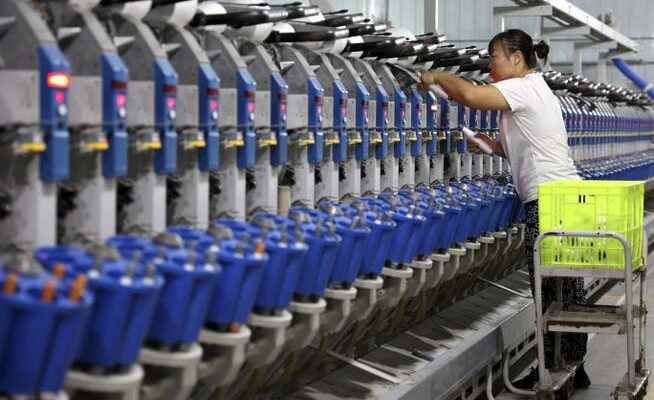The riots in front of the Foxconn plant highlight the working conditions in some Chinese production facilities. If conditions don’t improve, Chinese industry will have a problem – and so will its customers in the West.
Long working days and low wages are still widespread in China.
The video footage from around the huge iPhone factory in Zhengzhou, China is disturbing. They show how security forces in corona protection suits beat protesting young men in front of the Foxconn factory and sometimes injure them.
Every third industrial product comes from China
What led to the revolt can only be assessed in fragments so far. Several factors seem to have been the final straw. Apparently, newly hired employees were not paid according to the rates that had been promised to them beforehand. There were also complaints from workers who complained about being housed in the same dormitories as colleagues who were freshly infected with Sars-CoV-2. Other complaints were related to allegedly lousy food in the company canteens.
The incidents highlight the conditions under which Chinese factory workers are forced to work. Their fate affects us all to a certain extent, because in China not only electronic items such as the iPhone are manufactured in huge numbers, but also industrial products of all kinds. Approximately every third product from the processing industry that is sold worldwide comes from the Middle Kingdom.
Work and live in the factory
Unlike factories in the West, where much stricter rules apply, long working days and low wages are still the norm in Chinese production facilities. Because many workers can hardly afford an apartment of their own, they often spend a large part of their non-working time on the premises of their company. People sleep in the company’s own dormitories, and football and basketball pitches are available for playing together.
Given the great progress that China has made in terms of prosperity over the past two or three decades, however, fewer and fewer young people are willing to embrace such a lifestyle. It is interesting to note that countless industrial companies in the Middle Kingdom are complaining that they can no longer find enough workers. More than 80 percent of the companies are affected and the gaps would cover 10 to 30 percent of the required workforce, the conclusion is a recent survey by China’s state-owned staffing agency CIIC.
Dream job civil servant
Young Chinese are increasingly drawn into the service sector, where working conditions are often less harsh and wages are higher than in many industrial companies. Jobs in state administration seem to be particularly popular. An average of 6,000 applications were received for each advertised position, most recently from China media reports refer to.
This social change poses major challenges for the industry. Companies need to ask themselves how to cope with the labor shortage, which is also being exacerbated in China by the growing aging population. Some rely on automation. A good half of all robots installed in 2021 were in China. However, even in highly automated companies, certain workers still have to check that everything is in order.
Prices will continue to rise
The operators of Chinese factories and their customers from all over the world would do well to take greater account of the well-being of the workforce. It should be a matter of course, not only in the West, that industrial workers are paid appropriately, properly fed in canteens and not overburdened by their working hours. The betterment of workers in an economic area as large as China is also associated with costs. Consumers are likely to feel them in the form of further rising prices.
